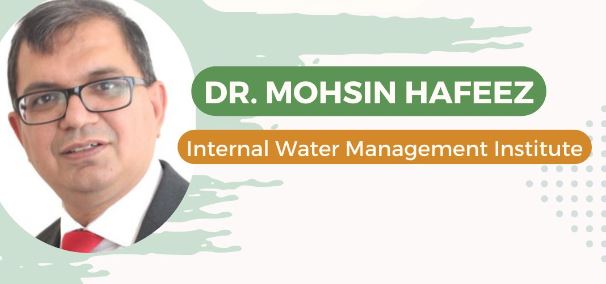Water sector reforms imperative for sustainable development
Dr Mohsin Hafeez, Director IWMI Calls for Sustainable Water Use
LAHORE : “Through climate-smart interventions, IWMI Pakistan aims to guide farmers, industrialists, urban water users, and other stakeholders on sustainable water use, so that water scarcity can be addressed”, said Dr Mohsin Hafeez, Director – Water, Food and Ecosystems, International Water Management Institute (IWMI) while speaking at the workshop at a local hotel on Monday.

The workshop was organized to mark the World Environment Day.– Speakers at a interactive session highlighted the role of water governance in fostering prosperity and sustainable development in the Punjab province.
Speakers were of the view that that Punjab is experiencing unpredictable rainfall patterns with the increasing impacts of climate change, which is increasing reliance on groundwater resources.
Dr. Hafeez also provided a summary of the implementation status of Punjab-specific interventions adopted under WRAP Programme Component 1: CRS-IWaG during the event. It entails putting in place a robust capacity-building programme for government agencies and other stakeholders at the provincial and district (Okara) levels; installing soil moisture sensors and Conductivity, Temperature, and Depth (CTD) automated groundwater divers in Okara for groundwater monitoring and determining crop water needs, respectively; developing the Water Accounting (WA+) and Irrigation Demand Management (IDM) framework; and geotagging of groundwater.
The Strategic Planning and Reform Unit (SPRU), PID’s Director of Social and Environmental Management, Dr. Muhammad Javed, gave a presentation to the delegates on the significance of Punjab’s water governance system for prosperity and long-term development. He claims that the Punjab Water Act 2019 has been enacted to control groundwater extraction, wastewater disposal, and the distribution of sub-sectoral water allocation. Any entity that wishes to abstract water must obtain a licence under the current licencing process. He also informed about the various initiatives of PID to improve water governance in Punjab.
Also, Engr. Malik Muhammad Akram, Director General, On Farm Water Management (OFWM) Punjab, highlighted the challenges faced by the agriculture sector and how improved management of water resources can contribute towards agricultural productivity in Punjab.
“We need to benefit from each drop of water, each inch of land, and each unit of electricity. An integrated approach will allow government departments, research institutions, and academia to work together for improved water governance in Punjab, he added. There is also a need to bring more area under cultivation, especially Potohar, Thal, and Cholistan areas.







